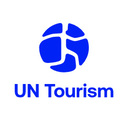UNWTO In Tunisia: Investments And Education Focus Of High-Level Visit
The Secretary-General of the World Tourism Organization (UNWTO) has met with H.E. Kais Saied, President of Tunisia, and his Prime Minister Hichem Mechichi of Tunisia during a high-level visit to the North African country. This second visit to an African Member State in the space of three weeks reaffirms UNWTO's commitment to restarting tourism across the continent and focus on working closely with governments to promote sustainable growth and innovation.
Secretary-General Zurab Pololikashvili thanked President Saied and his government for their strong support for tourism at this challenging time. A key focus of the high-level meeting was exploring ways in which UNWTO can support Tunisia as it channels tourism's power to drive sustainable development. Alongside this, the Secretary-General and the Tunisian authorities discussed UNWTO's partnership with the European Bank for Reconstruction and Development (EBRD), with a current project providing technical support to drive the recovery of Tunisia's tourism sector in the wake of the pandemic.
Together for future collaboration
Secretary-General Pololikashvili said: "Tunisia is an example of a country effectively investing in tourism and harnessing the unique power of the sector to promote development and create opportunities for many. I thank President Saied for his warm hospitality and for his government's support of tourism throughout and beyond the pandemic."
In addition to the meeting with the President and Prime Minister, the UNWTO delegation also held talks with the Tunisian Minister of Tourism Habib Ammar to discuss plans for current and future collaboration. Reflecting the key priorities of UNWTO's leadership, the talks focused on ways to boost sustainable tourism and to create jobs through innovation, education and investments, as well as tourism for rural development.
Investing in Africa's future
Also reflecting UNWTO's core priorities, most notably a commitment to developing talent and promoting education, the Secretary-General spoke at the opening of the Tunisia Hospitality Symposium. The Symposium was held at the Carthage High Commercial Studies Institute (or IHEC Carthage), the first and most prestigious business school in Tunisia.
The service sector, which includes tourism, is one of the two main economic sectors for Tunisia. According to UNWTO data, African destinations experienced a 99% decline in international tourist arrivals during the second quarter of 2020 when compared with 2019. Working closely alongside Member States from across the continent, UNWTO has realigned its 2030 Agenda for Africa to reflect the impact of the COVID-19 pandemic and help drive sustainable recovery.
About UN Tourism
The World Tourism Organization (UN Tourism), a United Nations specialised agency, is the leading international organisation with the decisive and central role in promoting the development of responsible, sustainable and universally accessible tourism. It serves as a global forum for tourism policy issues and a practical source of tourism know-how. Its membership includes 166 countries, 6 territories, 2 permanent observers and over 500 Affiliate Members from the private sector.
Media enquires: [email protected]
UN Tourism Communications Department
+34 91 567 8100
UN Tourism
